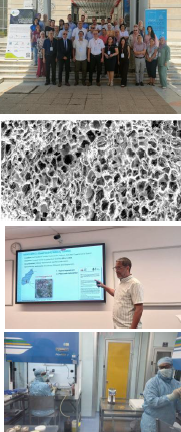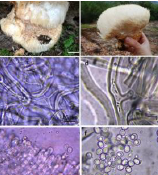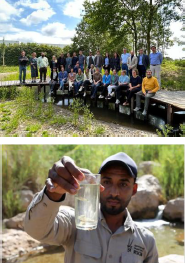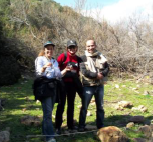protect, restore, and promote sustainable use of terrestrial ecosystems, manage forests,
combat desertification, halt and reverse land degradation, and stop biodiversity

Through its integrated strategy in research, teaching, and stakeholder engagement, the University of Tunis El Manar (UTM) actively contributes to the achievement of SDG 15: Life on Land. The university leads initiatives promoting biodiversity conservation, ecosystem restoration, and sustainable land management. UTM’s research covers diverse aspects of biodiversity. Animal-focused studies address species documentation, habitat restoration, and the reduction of human-induced ecosystem degradation resulting from deforestation, urbanization, hunting, pollution, and climatic events such as desertification and flooding. In parallel, plant research investigates resilience to environmental stress, including water scarcity, soil salinity, and the use of saline or treated wastewater for irrigation—proposing viable models for sustainable agriculture. Microbial studies further emphasize the ecological importance of microorganisms in maintaining ecosystem balance and supporting sustainable resource management. Complementing its research mission, UTM offers innovative academic programs that prepare students to address pressing environmental challenges. The university also strengthens partnerships with civil society organizations and environmental actors, translating scientific findings into practical initiatives that safeguard terrestrial ecosystems and biodiversity.

The University of Tunis El Manar has distinguished itself through pioneering research on macromycete fungi diversity in Tunisia’s forests. In collaboration with the National Gene Bank and international partners, researchers conducted the country’s first comprehensive inventory of these fungi, documenting 268 species, including seven globally recognized as rare. This initiative also resulted in the establishment of Tunisia’s first national herbarium of macromycetes. Beyond cataloging biodiversity, the research explored the potential applications and sustainable utilization of these fungal resources. Research has examined the nutritional properties of fungi and the potential of their bioactive molecules. These compounds show promising biotechnological applications, including the remediation of environmental pollutants and the enrichment of animal feed. The findings underscore the multifaceted value of fungal diversity for ecological balance, environmental sustainability, and practical applications in agriculture and industry.

In partnership with the Groupement de Développement Agricole Sid Amor, the University of Tunis El Manar participated in two workshops in Jordan: “Strengthening Biodiversity Resilience in a Changing Climate” (September 22–27, 2024) at the Azraq Eco-Lodge, and “Biodiversity – Nature’s Blueprint for Climate Adaptation” (September 28–30, 2024) at the Royal Academy for Nature Conservation, Ajloun Forest Reserve. During these events, Professor Atef Jaouani presented initiatives led by the Groupement de Développement Agricole Sid Amor alongside UTM’s research contributions in biodiversity conservation and climate adaptation. The sessions highlighted innovative approaches to enhance ecosystem resilience, promote sustainable land management, and tackle biodiversity challenges arising from climate change.

Faculty members, including Dr. Sonia Hmaied, along with students from the Faculty of Science and the Higher Institute of Medical Technologies of Tunis, have taken part in numerous study visits to natural sites and species conservatories. These field experiences form an essential component of biodiversity courses and research activities, offering practical, hands-on learning and deepening participants’ understanding of conservation practices. Such initiatives underscore the University of Tunis El Manar’s strong commitment to sustainability and environmental education.

